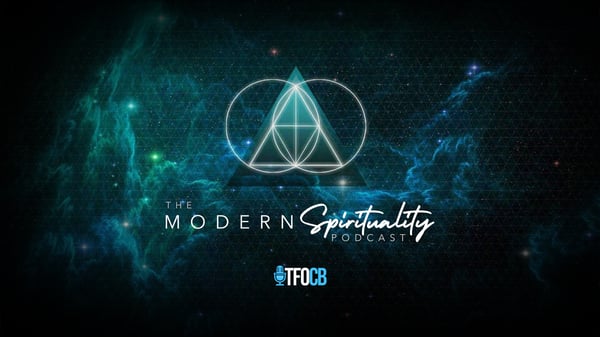Digital Detox for a Day: A Guide to Unplugging for Mental Clarity
Posted by Mind Reboot on Jan 16, 2024 8:00:00 AM
In today's hyper-connected world, where digital devices have become an extension of our very selves, the concept of a digital detox is not just appealing; it's necessary. A digital detox, the deliberate disconnection from digital devices for a set period, has gained significant attention as a means to reclaim mental clarity and peace. We hope to guide you through a one-day digital detox journey, highlighting the mental health benefits and providing practical tips for a successful detox.
The Need for a Digital Detox
Before diving into the 'how,' it's crucial to understand the 'why.' The constant barrage of notifications, social media updates, and the endless stream of information can lead to digital overload. This overstimulation can result in symptoms like anxiety, stress, reduced attention span, and even disrupted sleep patterns. A digital detox offers an opportunity to step back, reduce these symptoms, and reset our mental state.
Preparing for Your Digital Detox
-
Choose the Right Day: Select a day that naturally has fewer digital demands. For many, this might be a weekend or a day off. The key is to choose a day where you can afford to be less responsive to emails and notifications.
-
Inform Your Contacts: Let your friends, family, and colleagues know about your detox plan. This step is crucial to managing expectations regarding your availability.
-
Plan Your Day: Have a rough plan for your detox day. Choose activities that are engaging and enjoyable but don't involve digital devices. It could be reading a book, going for a hike, or engaging in a hobby.
During the Detox
-
Morning Rituals: Start your day without digital devices. Instead of reaching for your phone to check emails or social media, try meditation, a morning walk, or preparing a special breakfast. This sets the tone for a calm, device-free day.
-
Physical Activity: Engage in some form of physical exercise. Whether it's yoga, a brisk walk, or a bike ride, physical activity is known to boost mood and reduce stress.
-
Mindful Meals: Take the time to enjoy your meals without the distraction of screens. Mindful eating can enhance the experience of your meal and improve digestion.
-
Engage in Offline Activities: Dedicate time to activities that don’t require a digital device. It could be painting, gardening, reading, or even simple tasks like organizing your space.
-
Connect with Others: Spend quality time with friends or family face-to-face, if possible. Conversations and physical interactions are more fulfilling and contribute to our emotional well-being.
-
Reflect: Take some time for self-reflection. Journaling or simply sitting quietly and contemplating can be incredibly rejuvenating.
After the Detox
-
Ease Back into Digital Use: Don't rush to turn all your devices back on. Gradually reintroduce them into your routine.
-
Evaluate Your Experience: Reflect on your digital detox. What did you enjoy? What did you miss, if anything? Use these insights to adjust your regular digital habits.
-
Implement Long-term Changes: Consider setting boundaries for your digital device use. This might mean no devices during meals, setting aside phone-free times during the day, or turning off notifications from social media apps.
The Mental Health Benefits
Engaging in a digital detox can lead to several mental health benefits:
-
Reduced Stress and Anxiety: Disconnecting from the constant flow of information and social media can significantly reduce feelings of stress and anxiety.
-
Improved Attention Span: Without the constant interruptions from digital devices, you may notice an improvement in your ability to focus and concentrate.
-
Enhanced Mindfulness: A digital detox encourages living in the moment and increases awareness of your surroundings and feelings.
-
Better Sleep Quality: Reducing screen time, especially before bed, can lead to better sleep quality due to the decrease in blue light exposure, which can disrupt sleep patterns.
-
Improved Relationships: Spending time offline often means more quality time with loved ones, enhancing face-to-face interactions and deepening connections.
- Increased Creativity and Productivity: Unplugging from digital distractions can free up mental space, allowing for more creativity and productivity in other areas of life.
Challenges and Tips for Success
Embarking on a digital detox, especially for the first time, can come with its challenges. You might experience an urge to check your phone out of habit or feel anxious about missing out. Here are some tips to help you stay on track:
-
Find a Digital Detox Buddy: Having someone to share the experience with can make it more enjoyable and keep you accountable.
-
Create a No-Device Zone: Designate areas in your home, like the bedroom or dining room, as device-free zones.
-
Replace Digital Habits: If you habitually check your phone, replace this action with something else, like reading a few pages of a book or doing a quick stretching exercise.
-
Keep Devices Out of Reach: Physically distancing yourself from your devices can help reduce the temptation to use them.
-
Focus on the Positive: Remind yourself of the benefits of the detox whenever you feel the urge to break it.
A digital detox, even just for a day, can be a powerful tool in resetting your mental state and improving overall well-being. By consciously stepping away from your digital devices, you allow yourself the space to engage more deeply with the world around you, leading to a more balanced and fulfilling life. Remember, the goal is not to eliminate digital technology entirely but to create a healthier, more mindful relationship with it.
As you reintegrate into your digital life, take the insights gained from this experience and use them to cultivate a more mindful, balanced approach to technology. The key is finding a harmony that works for you, enhancing your life rather than detracting from it.
Topics: Mental Health

![Mind Reboot | Editorial | Digital Detox for a Day [hz]](https://www.tfocb.com/hs-fs/hubfs/Mind%20Reboot%20%7C%20Editorial%20%7C%20Digital%20Detox%20for%20a%20Day%20%5Bhz%5D.jpg?width=670&height=377&name=Mind%20Reboot%20%7C%20Editorial%20%7C%20Digital%20Detox%20for%20a%20Day%20%5Bhz%5D.jpg)













